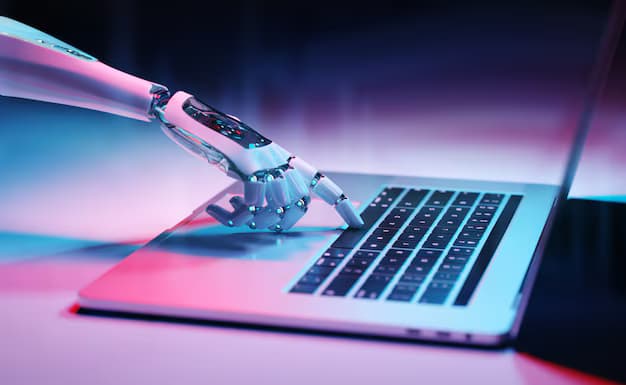In today's digital landscape, the intersection of technology and user experience is more pronounced than ever. With the rapid advancement of artificial intelligence (AI), businesses are discovering innovative ways to elevate their websites, ensuring that they not only attract visitors but also engage and retain them. This article delves into how AI website optimization is revolutionizing user experience and search engine optimization (SEO), offering insights into its implementation and the benefits that follow.
The Role of AI in Website Optimization
AI website optimization involves leveraging artificial intelligence technologies to enhance various aspects of a website, including its design, content, and functionality. By analyzing vast amounts of data, AI tools can identify patterns and trends that humans may overlook. This capability enables businesses to make informed decisions that cater to user preferences and behaviors.
One of the most significant advantages of AI is its ability to personalize user experiences. For instance, AI algorithms can analyze user interactions to tailor content dynamically. If a user frequently engages with articles about technology, the website can prioritize showing similar content, thereby enhancing the relevance of information. This not only improves user satisfaction but also encourages longer visit durations and repeat traffic—key metrics that search engines consider for ranking.
Moreover, AI tools can optimize website performance by analyzing loading speeds, mobile responsiveness, and overall usability. By pinpointing areas for improvement, businesses can ensure that their websites function seamlessly across devices. This is vital, as search engines like Google prioritize mobile-friendly sites in their rankings, directly linking user experience with SEO outcomes.
Enhancing User Experience through AI
User experience (UX) is at the heart of effective website design and optimization. When users encounter a website that is easy to navigate, visually appealing, and filled with relevant content, they are more likely to engage and convert. AI plays a pivotal role in shaping these experiences.
One example of AI’s impact on user experience is through chatbots and virtual assistants. These intelligent systems provide instant support, answering questions and guiding users through the website. By offering real-time assistance, businesses can reduce bounce rates and increase the likelihood of conversions. Furthermore, chatbots can gather valuable user data, allowing for continuous improvement of services and offerings.
Another critical aspect of user experience is content delivery. AI algorithms can analyze user behavior to determine the most effective ways to present information. For instance, through A/B testing, AI can identify which layouts, colors, or fonts resonate most with users. This data-driven approach ensures that businesses can create aesthetically pleasing and functional websites that meet user expectations.
In addition, AI-driven recommendations enhance the user journey by suggesting products or articles based on previous interactions. For e-commerce sites, this means that if a user adds a pair of shoes to their cart, the website can recommend matching accessories. Such personalized experiences not only drive sales but also establish a connection between the brand and the consumer, fostering loyalty and trust.
AI’s Impact on SEO Strategies
As the digital landscape evolves, so too do the strategies that businesses employ to improve their visibility on search engines. SEO is no longer just about keywords; it encompasses a holistic approach to content quality, user engagement, and website performance. AI website optimization plays a crucial role in shaping these strategies.
One of the primary ways AI enhances SEO is through advanced keyword analysis. Traditional keyword research often relies on historical data and manual analysis. However, AI tools can process real-time search trends, providing businesses with insights into emerging keywords and topics. This allows for a more proactive approach to content creation, ensuring that businesses remain relevant in an ever-changing digital environment.
Additionally, AI can significantly enhance the process of content optimization. By analyzing user engagement metrics, AI systems can suggest modifications to existing content—such as improving readability or incorporating relevant multimedia elements. This not only boosts the quality of the content but also helps improve search engine rankings, as search engines favor well-optimized pages that meet user needs.
Furthermore, AI can assist in technical SEO aspects, including site structure and metadata optimization. By analyzing website architecture, AI tools can identify issues that may hinder search engine crawlers from indexing the site effectively. Addressing these technical challenges ensures that the website remains accessible and ranks higher on search engine results pages.
The Future of AI in Website Optimization
As AI technology continues to advance, its potential for website optimization is boundless. Future developments may include even more sophisticated algorithms capable of predicting user behavior with remarkable accuracy. This predictive capability could allow businesses to create content and experiences that resonate deeply with their audience, solidifying their position in the market.
Moreover, the integration of AI with other emerging technologies, such as augmented reality (AR) and virtual reality (VR), opens new avenues for user engagement. Imagine a website that allows users to virtually try on clothes or visualize furniture in their homes—these immersive experiences can significantly enhance user satisfaction and drive conversions.
In addition, the ongoing evolution of voice search technology brings forth new challenges and opportunities for SEO. As more users employ voice commands to search for information, businesses will need to adapt their content strategies accordingly. AI can facilitate this transition by analyzing voice search patterns and optimizing content for natural language processing, ensuring that businesses remain competitive in this new landscape.
Conclusion
In conclusion, the integration of AI website optimization is a game-changer for businesses seeking to enhance user experience and improve SEO. By harnessing the power of artificial intelligence, companies can create personalized, engaging, and efficient websites that not only attract visitors but also foster loyalty. As technology continues to evolve, staying ahead of the curve through AI optimization will be essential for maintaining a competitive edge in the digital marketplace. Businesses that invest in AI-driven strategies are poised to leave their competitors behind, ensuring sustainable growth and success in the ever-evolving online ecosystem.





Comments